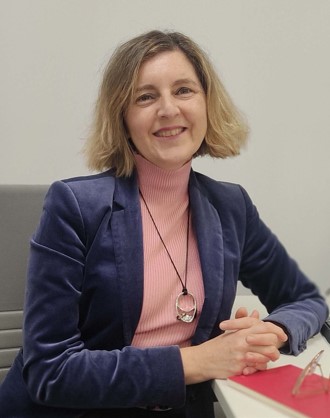ADD THESE DATES TO YOUR E-DIARY OR GOOGLE CALENDAR
This site is part of the Siconnects Division of Sciinov Group
This site is operated by a business or businesses owned by Sciinov Group and all copyright resides with them.
ADD THESE DATES TO YOUR E-DIARY OR GOOGLE CALENDAR

Universidad Europea de Valencia, Spain
Title:Gender and Innovation in Migration: Migrant Women as Transformative Forces in Host Communities
In a context of organizational and social transformation, traditional leadership models are being challenged, giving way to more inclusive, collaborative, and sustainable approaches. Female leadership emerges as a response to this need for change, bringing competencies such as empathy, emotional intelligence, horizontal team management, and the ability to reconcile work and personal life. This paper explores how women leaders are redefining the concept of leadership from a more human and resilient perspective, challenging hierarchical structures and promoting more equitable organizational cultures. Through a theoretical review and empirical experiences, the study analyzes the distinctive contributions of female leadership as well as the structural and cultural barriers that still persist. It invites a rethinking of current leadership models and highlights the need to integrate gender diversity as a key element for innovation, sustainability, and the development of 21st-century organizations.
Several studies have addressed the specific challenges women face in accessing and maintaining leadership positions. Authors such as Alice H. Eagly and Linda L. Carli have analyzed structural and symbolic barriers using metaphors such as the "leadership labyrinth," questioning the one-dimensional notion of the “glass ceiling.” Meanwhile, Sally Helgesen and Herminia Ibarra have emphasized the unique characteristics of female leadership—such as collaboration, empathy, and cross-cutting communication—offering a perspective that challenges traditional, masculinized leadership models. In this regard, the project adopts an interdisciplinary approach, drawing from Psychology, Sociology, Communication, and Gender Studies. Its aim is not only to analyze the barriers and stereotypes women face but also the strategies and strengths they develop as leaders in complex environments.
Fátima Gómez Sota, has a degree in Political Science and Sociology from the University of Deusto and a PhD in Sociology from the University of the Basque Country (Spain). Actually She is Associate professor of Sociology and resarch Coordinator on the Faculty of Social Sciences at European University. She has participated in numerous national and international conferences, and write more than 20 papers, in the field of international migrations, Sociology of work and diversity and new forms of socialization and identity of Z generation.
Her current lines of research focus on Social Innovation, Diversity in the Workplace and Social Inequality. She is IP of GISO Research Group (Gender and Socio-Organizational Inovation).